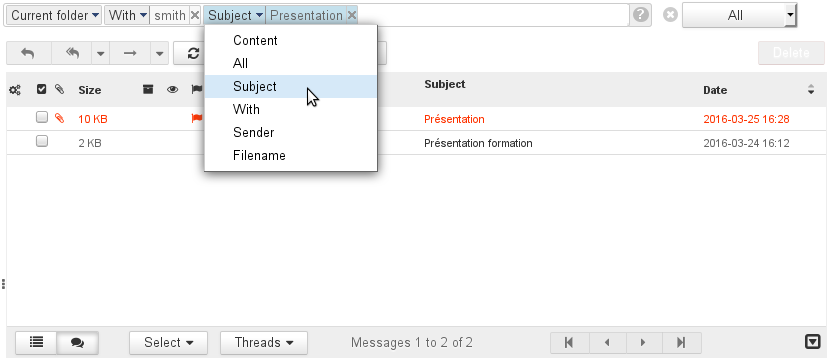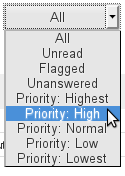Historique de la page
...
| Sv translation | |||||||||
|---|---|---|---|---|---|---|---|---|---|
| |||||||||
Using the search engineAbove the search box, a drop-down menu allows you to select the search area: Use the drop-down list below the search box to select the message status:
As you type, several options are displayed for you to refine your search. If no option is selected, the search covers all fields: Once the search is launched and a search option has been chosen, you can modify it using the menu which is added before the search term the search box: The text box is always available. That way you can perform multi-criteria searches, on the sender or the message subject for instance: Each search term can be removed by clicking the "x" next to it: To delete a search and view all messages again, click the at the end of the search box.
|









